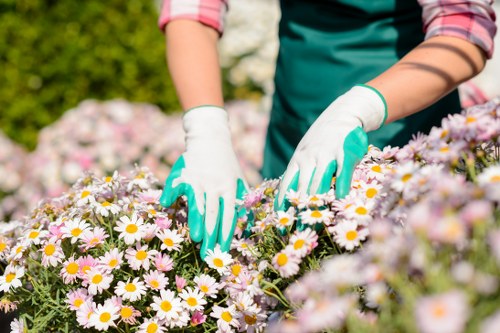The Ultimate Guide to Sofa Cleaning: Keep Your Sofa Looking New

Maintaining a clean sofa is essential for both the longevity of your furniture and the health of your household. Sofas are a central piece in most living spaces, often witnessing daily wear and tear, spills, and stains. Without proper care, a sofa can quickly become unsightly and a breeding ground for allergens.
Understanding the best methods to clean your sofa not only preserves its appearance but also enhances the overall hygiene of your home. Whether you prefer DIY solutions or professional services, this guide will provide you with comprehensive information on sofa cleaners and effective cleaning techniques.
In this article, we will explore various aspects of sofa cleaning, including the types of cleaners available, methods for different fabric types, and tips for maintaining a spotless sofa. Let's dive in!
Why Regular Sofa Cleaning Matters

Regular cleaning of your sofa is crucial for several reasons. Firstly, it helps in removing dirt, dust, and allergens that can accumulate over time. These particles can trigger allergies and respiratory issues, especially for those with sensitive skin or pre-existing conditions.
Secondly, routine cleaning prevents the buildup of grime and stains, which can degrade the fabric and structure of the sofa. This not only extends the life of your furniture but also maintains its aesthetic appeal.
Lastly, a clean sofa creates a more inviting and comfortable environment in your living space, enhancing the overall ambiance of your home.
Health Benefits of a Clean Sofa

A clean sofa significantly contributes to a healthier living environment. Eliminating dust mites, bacteria, and mold spores reduces the risk of infections and allergic reactions. Regular cleaning can also minimize unpleasant odors, ensuring that your living space remains fresh and hygienic.
Moreover, maintaining a clean sofa can have positive effects on mental well-being. A tidy and organized space promotes relaxation and reduces stress, making your home a sanctuary for rest and rejuvenation.
Investing time in sofa cleaning is an investment in your family's health and comfort.
Types of Sofa Fabrics and Their Cleaning Needs

Different sofa fabrics require varying cleaning methods to avoid damage and ensure effective stain removal. Understanding the type of fabric you have is the first step in choosing the appropriate sofa cleaner.
Here are some common sofa fabrics and their specific cleaning needs:
- Leather: Requires specialized cleaners to maintain its texture and prevent cracking.
- Microfiber: Durable and stain-resistant, but benefits from regular vacuuming and occasional deep cleaning.
- Cotton: Versatile and easy to clean, though prone to wrinkles and stains.
- Velvet: Delicate and requires gentle cleaning to preserve its sheen and softness.
Identifying your sofa's fabric type will guide you in selecting the most effective cleaning products and methods.
Leather Sofas: Special Care Techniques

Leather sofas are elegant and durable, but they demand specific care to maintain their luster and flexibility. Avoid using harsh chemicals that can dry out the leather, leading to cracks and brittleness.
Instead, opt for leather-friendly cleaners that gently remove dirt and stains without compromising the material's integrity. Regular conditioning is also essential to keep the leather supple and prevent discoloration.
For stubborn stains, consider consulting a professional to avoid accidental damage.
Choosing the Right Sofa Cleaner

Selecting the appropriate sofa cleaner depends on various factors, including the fabric type, the nature of the stains, and personal preferences regarding eco-friendliness and chemical ingredients.
Here are some key considerations when choosing a sofa cleaner:
- Fabric Compatibility: Ensure the cleaner is suitable for your sofa's material to prevent damage.
- Stain Type: Different cleaners are formulated to tackle specific stains like oil, wine, or pet accidents.
- Eco-Friendly Options: If you prefer natural ingredients, look for cleaners free from harsh chemicals.
- Ease of Use: Some cleaners come in spray form for easy application, while others may require mixing.
Taking the time to choose the right cleaner will enhance the effectiveness of your sofa cleaning efforts.
Top Recommended Sofa Cleaners

There are several highly-rated sofa cleaners available in the market. Here are some top recommendations:
- Breeze Tissue Cleaner: Ideal for quick stain removal without leaving residues.
- EcoClean Fabric Shampoo: A sustainable option that uses natural ingredients to clean thoroughly.
- Leather Care Deluxe: Specifically designed for leather sofas, providing both cleaning and conditioning.
Always check the product label and perform a patch test before using any cleaner on your sofa.
DIY Sofa Cleaning Methods

If you prefer a cost-effective and natural approach, numerous DIY sofa cleaning methods can be effective. Here are some popular techniques:
- Baking Soda Treatment: Sprinkle baking soda on the sofa to absorb odors and loosen stains. Let it sit for 15 minutes before vacuuming.
- Vinegar Solution: Mix equal parts of white vinegar and water to create a mild cleaning solution suitable for many fabrics.
- Hydrogen Peroxide: For tougher stains, a diluted hydrogen peroxide solution can help break down discoloration.
Always test any DIY solution on a hidden area of the sofa to ensure it does not cause discoloration or damage.
Step-by-Step DIY Cleaning Process

Follow these steps for an effective DIY sofa cleaning session:
- Remove all cushions and vacuum the entire sofa to eliminate loose dirt.
- Apply your chosen cleaning solution to a clean cloth rather than directly onto the fabric to prevent oversaturation.
- Gently blot the stained area, working from the outside in to avoid spreading the stain.
- Allow the sofa to air dry completely before repositioning the cushions.
Consistency is key. Regular DIY cleaning can maintain your sofa's appearance between deeper cleanings.
Professional Sofa Cleaning Services

While DIY methods are effective for routine maintenance, professional sofa cleaning services offer a deeper and more thorough clean. Professionals have access to advanced equipment and specialized cleaning agents that can tackle stubborn stains and embedded dirt.
Here are the benefits of opting for professional cleaning:
- Expertise: Trained technicians understand different fabrics and the best cleaning techniques for each.
- Time-Saving: Professionals can clean your sofa quickly and efficiently, freeing up your time.
- Advanced Equipment: Industrial-grade machines can remove deep-seated dirt and allergens more effectively than home equipment.
- Guaranteed Results: Many services offer satisfaction guarantees, ensuring your sofa meets your cleanliness standards.
For heavily soiled sofas or those with delicate fabrics, professional cleaning is often the best choice.
When to Hire a Professional Cleaner

Deciding when to hire a professional sofa cleaner depends on several factors:
- Stubborn Stains: If DIY methods fail to remove tough stains like red wine or ink.
- Odor Removal: Persistent odors that do not respond to home treatments.
- Allergen Removal: For households with allergies, a professional clean can significantly reduce allergens.
- Post-Renovation Cleaning: After home renovations, professional cleaning can remove dust and debris from your sofa.
Assess the condition of your sofa regularly to determine if professional intervention is necessary.
Tips for Maintaining a Clean Sofa

Maintaining a clean sofa requires consistent effort and mindfulness. Here are some effective tips to keep your sofa looking pristine:
- Use Sofa Covers: Protective covers can shield your sofa from spills and stains, making it easier to clean.
- Vacuum Regularly: Frequent vacuuming removes dust and prevents dirt from settling deep into the fabric.
- Rotate Cushions: Rotating and flipping cushions ensures even wear and prolongs their lifespan.
- Address Stains Immediately: The quicker you treat a spill, the easier it is to remove.
- Avoid Eating on the Sofa: Reduces the risk of spills and crumbs attracting pests.
Incorporating these habits into your routine will significantly enhance the cleanliness and durability of your sofa.
Organizational Strategies for a Tidy Sofa

Organizing your living space can also contribute to a cleaner sofa:
- Declutter: Keep the area around your sofa free from unnecessary items to reduce the accumulation of dust.
- Use Throw Blankets and Pillows: Strategically placed blankets and pillows can protect the sofa fabric and add aesthetic value.
- Implement a No-Shoes Policy: Limiting shoes on furniture can minimize dirt and grime transfer.
These strategies not only help maintain cleanliness but also enhance the overall look of your living room.
Common Sofa Stains and How to Remove Them

Stains are inevitable, but knowing how to tackle them effectively can save your sofa from permanent damage. Here are some common types of stains and recommended removal methods:
- Red Wine: Blot immediately with a clean cloth, then apply a mixture of white vinegar and dish soap.
- Coffee: Use a solution of baking soda and water to gently scrub the area.
- Pet Accidents: Enzyme-based cleaners are effective in breaking down organic stains and removing odors.
- Ink: Dab with rubbing alcohol using a cotton swab, being careful not to spread the ink.
- Grease: Sprinkle cornstarch on the stain to absorb the grease, then brush off and clean as usual.
Always test any stain removal method on a hidden area of the sofa first to ensure it does not cause discoloration or damage.
Preventing Future Stains

Preventing future stains involves a combination of proactive measures and mindful habits:
- Establish Rules: Create guidelines for activities near the sofa, such as eating or drinking, to minimize spill risks.
- Regular Maintenance: Consistently clean and inspect your sofa to address minor issues before they escalate.
- Protective Sprays: Consider applying fabric protectors that repel liquids and resist stains.
By taking these preventative steps, you can significantly reduce the likelihood of stains and prolong the life of your sofa.
Eco-Friendly Sofa Cleaning Options

For environmentally conscious individuals, eco-friendly sofa cleaning options are available that minimize chemical usage and reduce environmental impact. Here are some sustainable cleaning alternatives:
- Natural Cleaners: Utilize household items like vinegar, baking soda, and lemon juice for effective cleaning without harsh chemicals.
- Plant-Based Products: Choose cleaners made from renewable resources that are biodegradable and non-toxic.
- Reusable Cleaning Tools: Invest in microfiber cloths and refillable cleaning solutions to decrease waste.
Adopting eco-friendly cleaning practices not only benefits the environment but also ensures a healthier home for you and your family.
The Benefits of Going Green with Sofa Cleaning

Embracing green cleaning methods offers numerous advantages:
- Healthier Indoor Air Quality: Reduces exposure to harmful chemicals, promoting better respiratory health.
- Environmental Conservation: Minimizes chemical runoff and reduces your carbon footprint.
- Cost-Effective: Many natural cleaning agents are inexpensive and readily available.
- Safe for Pets and Children: Non-toxic cleaners ensure the safety of your loved ones.
Incorporating green cleaning practices is a responsible choice for both personal health and environmental sustainability.
Frequently Asked Questions

Here are some common questions about sofa cleaning:
- How often should I clean my sofa? Regular vacuuming is recommended weekly, with deep cleaning every 6-12 months.
- Can I use a steam cleaner on my sofa? It depends on the fabric type; always check the manufacturer's guidelines before using a steam cleaner.
- What should I do if my sofa has a pet stain? Address it immediately with an enzyme-based cleaner to effectively break down organic matter and remove odors.
- Is professional cleaning necessary? While DIY methods are effective for regular maintenance, professional cleaning is beneficial for deep cleaning and stubborn stains.
- Can I prevent my sofa from staining? Using protective covers, implementing a no-food policy on the sofa, and regular maintenance can significantly reduce the risk of stains.
Additional Cleaning Tips

To further enhance your sofa cleaning routine, consider these additional tips:
- Avoid Direct Sunlight: Prolonged exposure can fade fabrics and weaken fibers.
- Use Pillows Wisely: Rearrange pillows regularly to prevent uneven wear on the sofa.
- Check for Damage: Inspect your sofa periodically for any signs of wear or damage that may need repair.
Implementing these practices ensures that your sofa remains in excellent condition for years to come.
Conclusion

Keeping your sofa clean is a manageable task with the right knowledge and tools. By understanding your sofa's fabric, choosing the appropriate sofa cleaner, and adhering to regular maintenance practices, you can preserve its beauty and functionality.
Whether you opt for DIY methods or professional services, consistent care is key to ensuring your sofa remains a comfortable and stylish centerpiece in your home.
Don't wait for stains to set or odors to linger. Take proactive steps today to maintain a clean and inviting living space. Contact us today for expert advice or book your sofa cleaning service now to experience the difference!